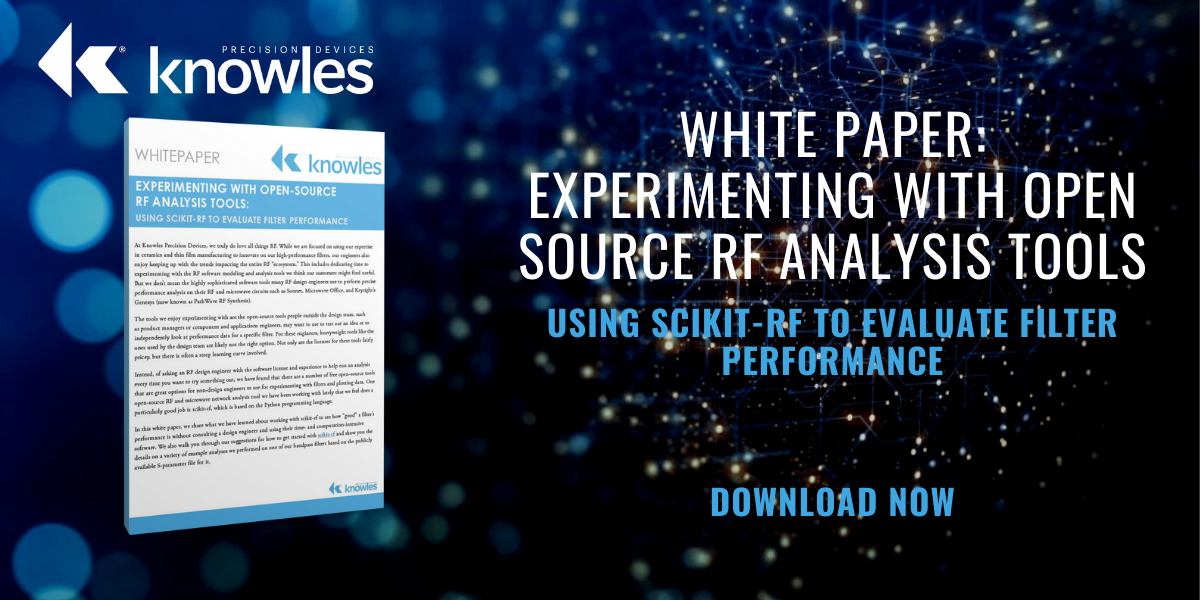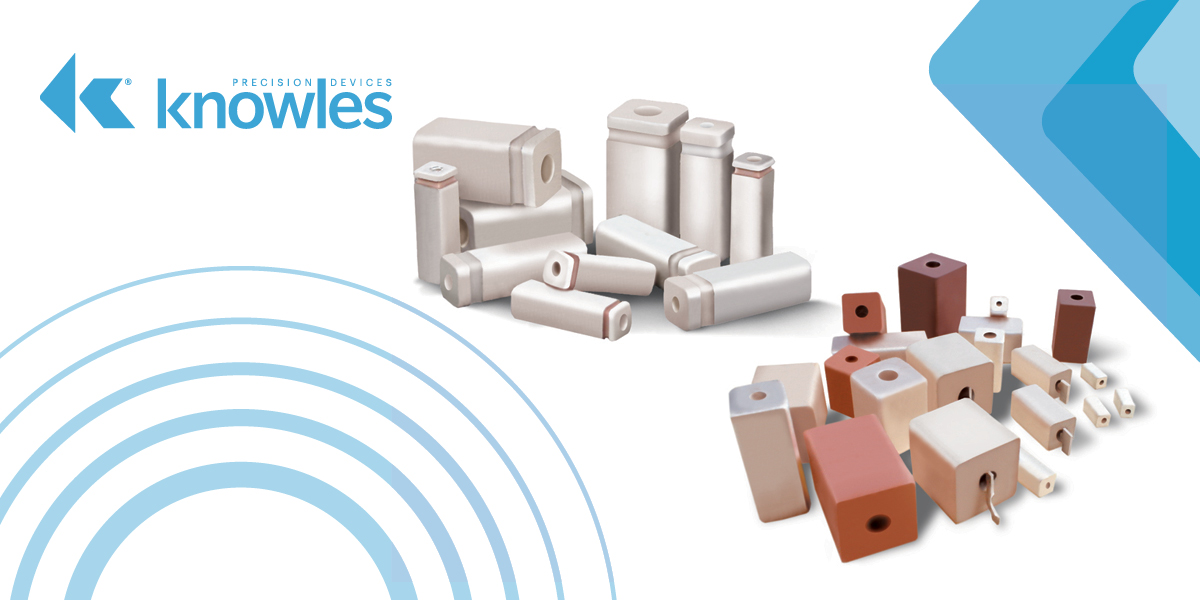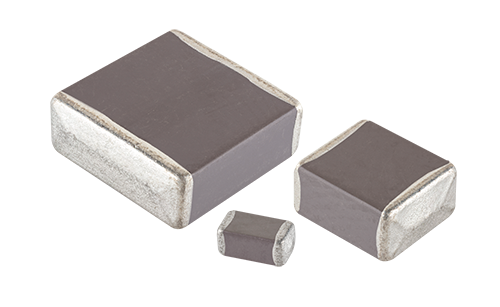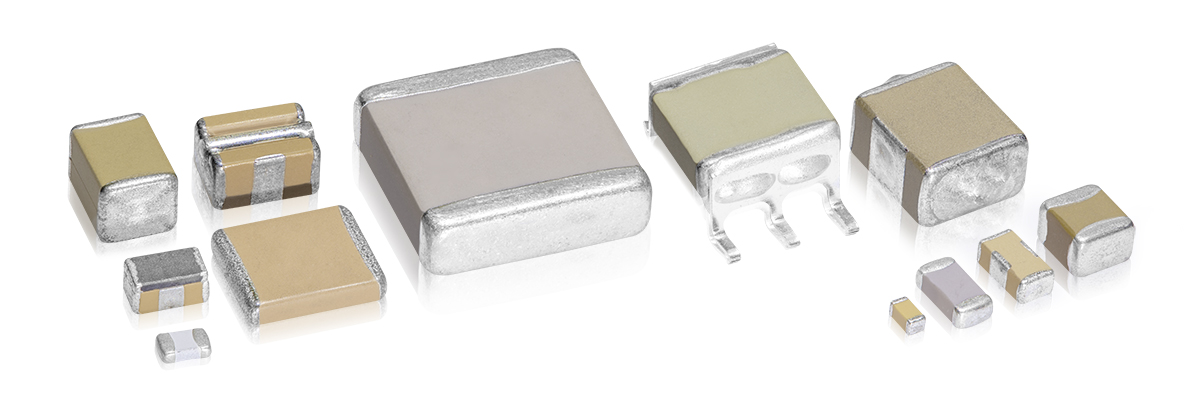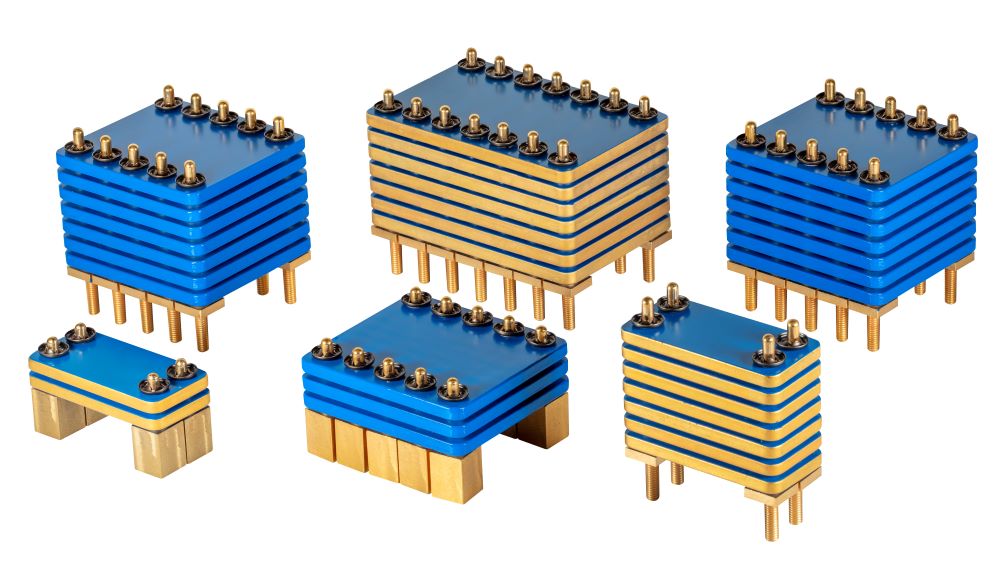At this point, you’ve likely seen a slew of mainstream news articles about 5G causing safety concerns around air travel. In fact, ahead of the rollout of new 5G services from major US telecom companies including Verizon and AT&T on Jan. 19, 2022, many international airlines canceled or delayed flights to major US airports where they believed 5G signals could possibly interfere with the radar signals required to properly operate landing equipment on their planes.
Striking a Balance for Spectrum Needs: 5G Communications vs. Aircraft Altimeter Operations
Topics: RF and Microwave, Military and Aerospace, Filtering
Webinar: Addressing MLCC Performance Issues in High-Voltage EV Applications
In recent years, multilayer ceramic capacitors (MLCCs) have emerged as an excellent capacitor option for the high-power electrical systems needed in electric vehicle (EVs) due to their small physical size, low inductance, and ability to operate at higher temperatures. However, EV engineers are facing two big challenges with using MLCCs including DC bias that can cause capacitance loses of 80 to 90 percent of their quoted value and self-heating issues from AC ripple that can lead to inefficiencies in circuits as well as increased cooling demands.
Topics: Capacitor, News and Events, Electric Vehicles
Take Advantage of Open-Source RF Analysis Toolkits
At Knowles Precision Devices, we truly do love all things RF. While we are focused on using our expertise in ceramics and thin film manufacturing to innovate on our high-performance filters, our engineers also enjoy keeping up with the trends impacting the entire RF “ecosystem.” This includes dedicating time to experimenting with various open-source RF modeling and analysis tools that we think our potential non-design engineer customers might find useful. One open-source RF and microwave network analysis tool we have been playing around with lately that we feel does a particularly good job is scikit-rf, which is based on the Python programming language.
Topics: RF and Microwave
Planar Filter Technology for Millimeter Wave Applications
The advent of fifth generation (5G) communications brings an increased interest in Millimeter Wave (mmWave) technologies. One of the biggest technology challenges engineers face with 5G is how to implement sufficiently high-performance RF filtering in mmWave applications. Given the frequencies involved a distributed element planar approach, such as using Microstrip or Stripline, is often ideal for constructing resonators and filters.
Topics: RF and Microwave
Expanding Our Filter Technology Offerings to Serve Low-Frequency Applications
This year, Knowles Precision Devices acquired Integrated Microwave Corporation (IMC), a leader in the design and manufacture of custom precision RF microwave filters and multiplexers for the aerospace, defense, and communications industries. This acquisition was particularly exciting as our two companies share deep expertise in engineering high-performance ceramics for RF and microwave applications. And, like Knowles Precision Devices, IMC also has a long heritage of supplying highly reliable components for mission critical space devices that includes applications such as the MARS Orbiters, MARS Landers, and MARS Rovers.
Topics: News and Events, RF and Microwave, Military and Aerospace
Wrapping Up 2021 with Knowles Precision Devices’ President Chris Dugan
Throughout the COVID-19 pandemic, Knowles Precision Devices has stayed focused on our primary goal of helping our customers address their most challenging application needs by providing high-performance components and innovative solutions. While 2021 did offer some unique challenges, overall, it was an exceptional year for our business. This is because even though all the unprecedented circumstances we saw in 2020, we were able to quickly adapt our business, making us really well positioned heading into 2021. As a result, this year was one of our best growth years to date.
Topics: News and Events
New Low Loss, Ultra Stable High-Capacitance MLCCs for Power Electronics
Many power electronics today are being designed for use in high-temperature, high-voltage environments, such as inside electric vehicles (EVs). However, size, weight, and power (SWaP) are also key factors driving electronic product development. These conflicting design criteria are an issue for many electrical engineers because space is not available to simply add a cooling system, as this will add weight and increase the product’s overall footprint. Therefore, many of these electronic components are susceptible to “running hot” at the high temperatures and high voltages used in these tiny spaces.
Topics: Capacitor, Electric Vehicles, High Reliability
Addressing Electronic Circuit Development Challenges for Medical Devices
From systems that diagnose, like a magnetic resonance imaging (MRI) machine, to implantable devices that treat patients, like pacemakers and implantable cardioverter-defibrillator (ICDs), highly reliable electronic components are necessary. While the functionality of these devices is quite different, the challenges associated with designing these devices, such as selecting failsafe electronic components designed for lifetime reliability and ensuring supplier partners can meet industry-specific standards, are shared. Let’s look more closely at some of the industry-wide challenges associated with electronic component selection for medical devices as well as some of the application-specific decisions medical device designers need to make to ensure these devices function consistently and reliably for the long term.
Topics: Medical, High Reliability
Simplify Capacitor Dielectric Selection by Understanding Dielectric Coding Methods
When designing a ceramic capacitor, the type of dielectric used will influence the characteristics of the capacitor and define its electrical behavior. At a high level, there are two types of dielectrics made with ceramics – paraelectric and ferroelectric. Dielectrics containing paraelectric (or non-ferroelectric) ceramics are known as Class I dielectrics. These dielectrics show a linear relationship of polarization to voltage and are formulated to have a linear temperature coefficient. Capacitors using a Class I dielectric have high stability across various temperatures, but have low permittivity, which means the capacitor will offer low capacitance.
Achieving high capacitance means going big. But how do you do that while still maximizing board space? At Knowles Precision Devices, we’ve developed a new method for building customizable large capacitor assemblies that capitalize on the vertical space above the circuit board. While stacked capacitor assemblies have been around for many years, these parts do not have very good bump and vibration withstand due to the thin leads used in their construction. These new assemblies from Knowles Precision Devices offer a ruggedized construction capable of withstanding high levels of shock and vibration. This offers a unique combination of capability, durability, high capacitance, and very high voltage in a smaller area, making these capacitors ideal for automotive, military, and aerospace applications.
Topics: Capacitor, Automotive, Military and Aerospace, Electric Vehicles, High Reliability



